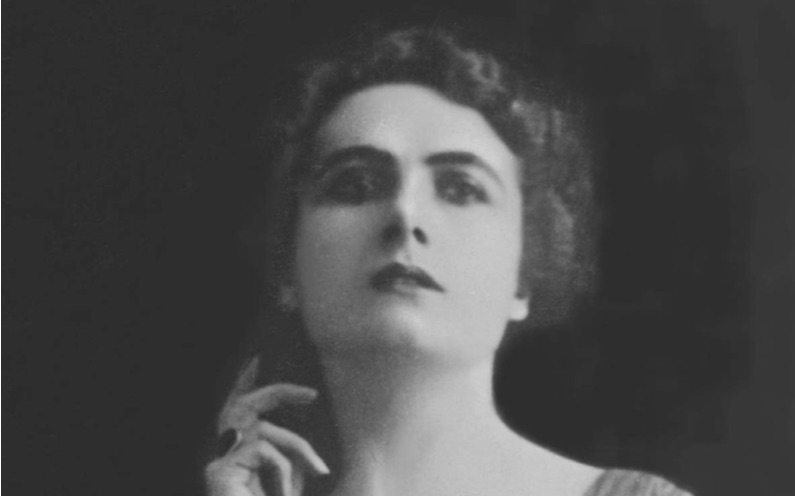La diva italiana: Francesca Bertini

These wordless creatures who had to communicate their feelings with gestures, with the plasticity of their person and with their gaze, they remained at an invulnerable, inaccessible distance, beyond reality and shrouded in poetry and mystery. Such a product could only have arisen in a country with the cult of beauty. Women, whom all men wanted to love in order to be loved, and who one day, after representing such fiery and sorrowful passions, are themselves won over by love as if they had been long awaited, only to disappear from the screens to become brides and mothers to be taken as examples. Note the fresh and ingenuous manner in which Francesca Bertini notices that she is in love; she, whom until that time no offer or protest on the part of her many suitors could distract from her work, speaks of the young friends who made their fiery declarations in writing: “In those days sweethearts measured themselves in the dangerous game of writing; today they don’t waste the time: they get right to the point and they don’t write anymore”. Had I not known that Francesca Bertini was Florentine, and that when she became Countess Cartier she was married at the Villa Mirafiori in Pozzolatico, I would have proposed to the mayor of Florence that she be made an honorary citizen. And, speaking of Florence, her gaze sharpens as if to look far off, with eyes that have kept the clarity and power of youth, Francesca Bertini, still beautiful, “those narrow streets…” – she says, lowering her voice. “Those narrow streets…” – I answer, echoing her in an aspiration to walk them again that brings rejuvenation also to me. Today Francesca Bertini is a lady who knows how to hold a conversation, without allowing even a moment of weakness into the discussion; lively and even combative as soon as we touch on issues that nourish her life still today, in the perfect lucidity of memory. Contradicting her proves hopeless; I hold out only by retreating decently, laughing. Someone whispers to me that her films are by now not just impossible to find, but without a doubt also destroyed. I hope it’s not true. A testimonial to the most interesting moment of the new art and its debut would be lost, leaving a disgraceful gap that could never be filled; our cinema would thus become a construction devoid of its foundations, indispensable for their qualities today as well as for those fleeting elements that mark an era of great character in the history of Italian cinema.
Aldo Palazzeschi, introduction to Francesca Bertini, Il resto non conta, Pisa, Giardini, 1969


